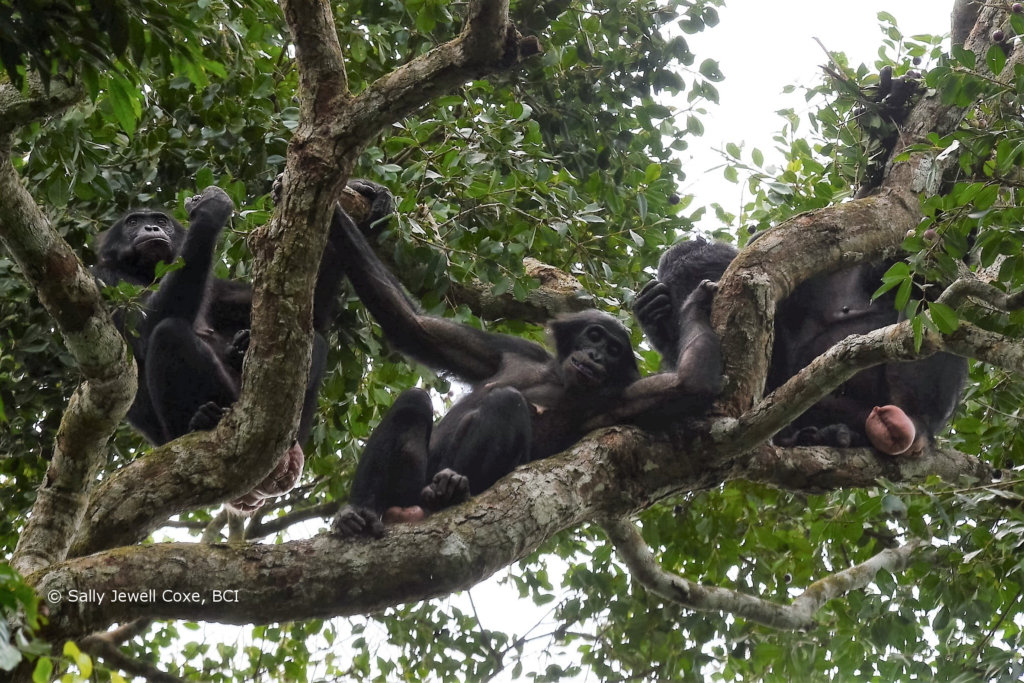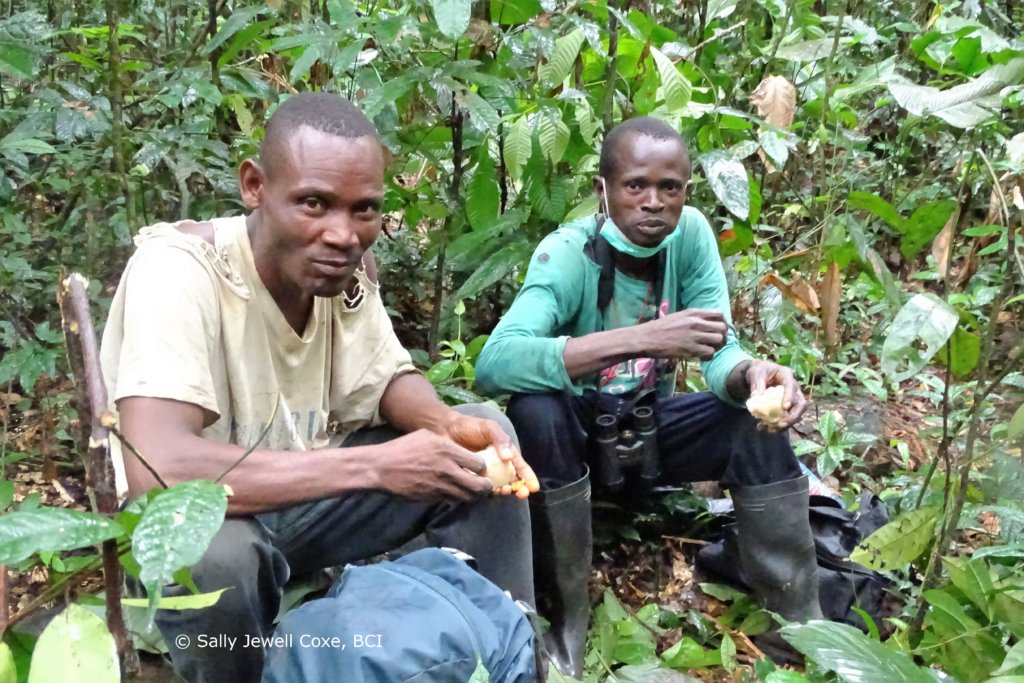By Jennifer Moustgaard | Program Coordinator
Over the last few months, our research team at Kokolopori has been busy studying two habituated bonobo groups. Conducted under the supervision of the Max Planck Institute for Evolutionary Anthropology, the project aims to document group composition, feeding ecology and behavior of the Nkokoalong and Ekalakala bonobos.
Led by Dr. Martin Surbeck, the team, which includes seven of the best trackers at Kokolopori, has been working hard to identify the bonobos in the two groups, assigning each one a name. They are also being creative with their naming conventions: musician names for members of the Nkokoalongo group and colors for Ekalakala. Among the notables are: Bowie, Marley, Papa Wemba, and Madonna!
The project is already producing some intriguing glimpses into the lives of wild bonobos, while confirming behaviors observed by other researchers. The groups have been moving through the forest and nesting near each other for the last couple of weeks, providing ample opportunity for our researchers to observe how two groups interact. Just last week, the team noted that a female from each group has switched to the opposite group.
Migration between groups is common once female bonobos reach adolescence. A recently published long-term study of bonobos at neighboring Wamba may provide insight into how female bonobo behavior facilitates this phenomenon. Nahoko Tokuyama and Takeshi Furuichi of Kyoto University found that older female bonobos will help younger, unrelated females who are being aggressively targeted by males. This protective behavior presumably allows new, younger females to join a group without the threat of being bullied by the male members. They hypothesize that this behavior also helps to form bonobos’ matriarchal social structure.
Our research program is already giving us insight into bonobo group dynamics and female alliances. We are excited about its potential to contribute to the broader scientific and conservation communities. Your support makes this work, and more, possible. As always, thank you for standing with us!
Links:
Project reports on GlobalGiving are posted directly to globalgiving.org by Project Leaders as they are completed, generally every 3-4 months. To protect the integrity of these documents, GlobalGiving does not alter them; therefore you may find some language or formatting issues.
If you donate to this project or have donated to this project, you can receive an email when this project posts a report. You can also subscribe for reports without donating.
Support this important cause by creating a personalized fundraising page.
Start a Fundraiser
